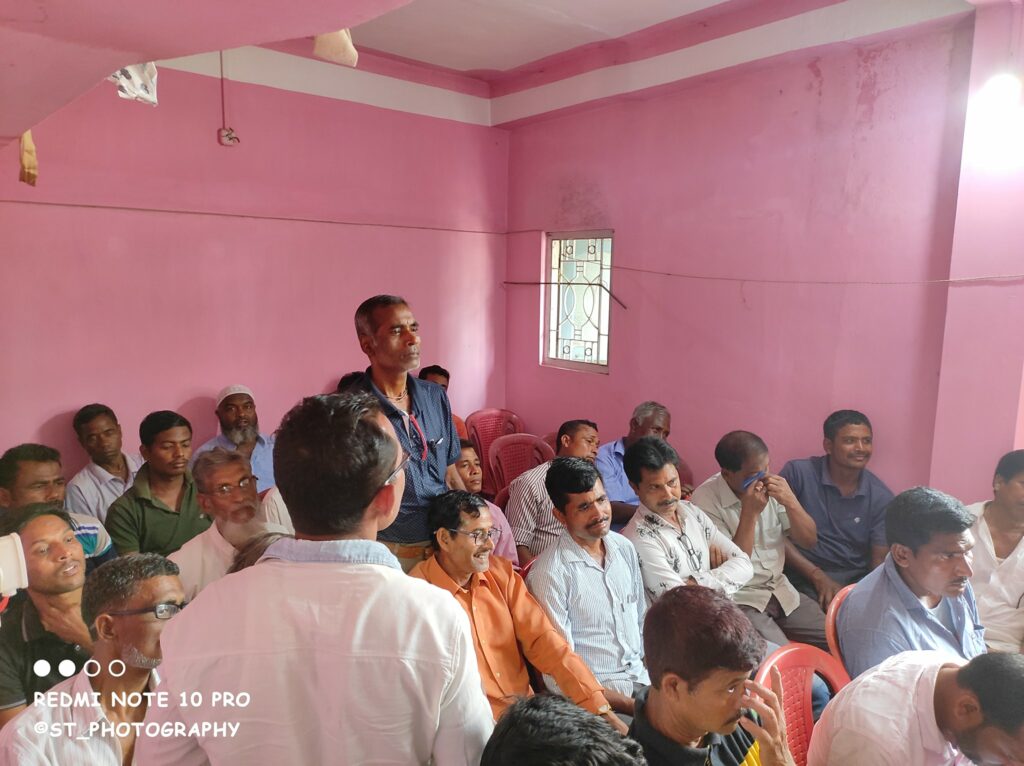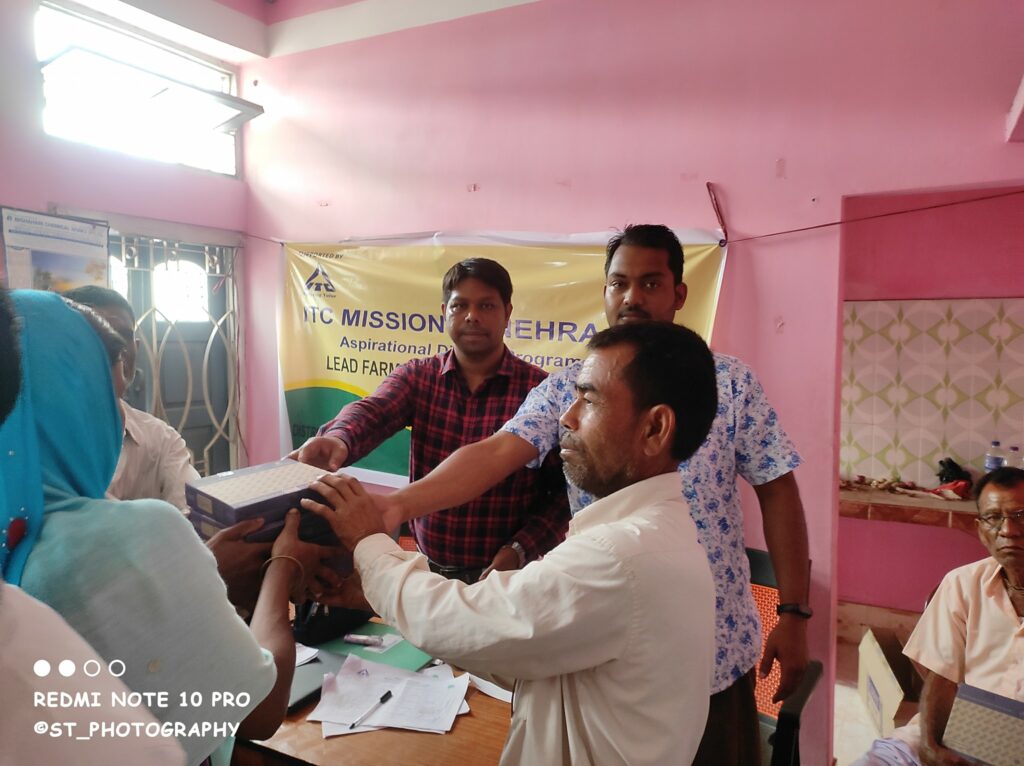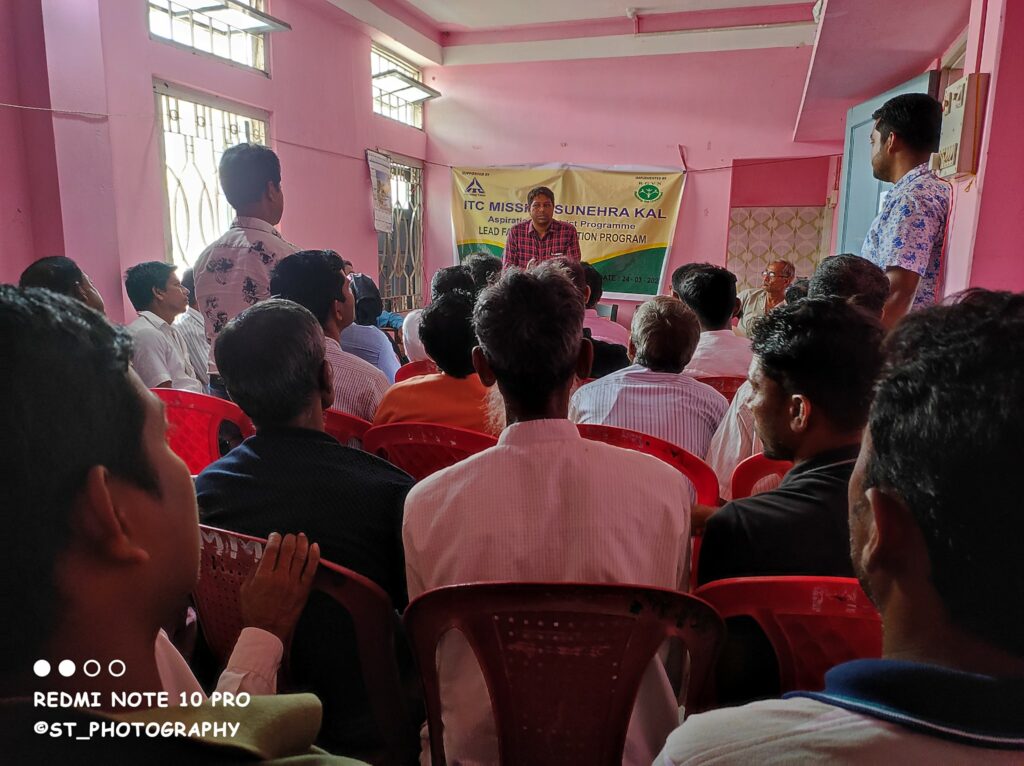
A Lead Farmer Interaction Programme at RGVN’s Dhubri Office.
ITC Mission Sunehra kal – NITI AAYOG Transformation of Aspirational Districts Program
A Lead Farmer Interaction Programme was conducted recently at RGVN’s Dhubri Office.
The majority of Indian farmers own very small plots and practice rain-fed agriculture, depending almost entirely on the yearly monsoon for irrigation. A bad monsoon – too little, too much or untimely rain – means that they are unable to sow or harvest successfully. Poor soils, high cultivation costs and inefficient farming methods worsen the situation, leading to low productivity and uncertain incomes. Erratic weather patterns caused by climate change are making their risky livelihoods even more precarious.
This type of programmes help Farmers to widen their perspective and adopt best practices. It is also designed to assist such small farmers to cope with these challenges. Due to faster depletion of the ground water, farmers should go diversified agriculture instead of Paddy crop alone. Both central and state governments are supporting the farming community in a big way through different irrigation schemes and subsidy schemes.
Demonstration plots and farmer field schools in villages give them information and practical training on climate smart farming practices and technologies, e.g. water saving irrigation devices, organic pesticides and fertilisers, mechanisation appropriate for small plots, etc.
These programmes help farmers to conserve and manage soil and water resources, improve crop yields and reduce cultivation costs – leading to higher incomes and fewer incidences of crop failure, making farming less risky and a more sustainable livelihood now and in the future.





